This Is the One Word You Should Never Say to Someone With Anxiety
Expert say this word may just worsen a person's anxiety rather than help.
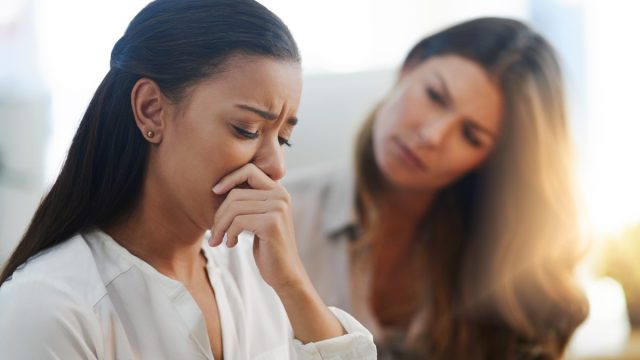
Language is complex, and what you say to one person may not come across the same to someone else. This is especially true if they are dealing with external factors, such as anxiety. When someone is spiraling with anxiety, what you say to them can either help them calm down or have the ability to send them further down a spiral. With that in mind, word choice becomes extremely important here. According to experts, the one word you should never say to someone with anxiety is "relax."
"When telling someone to 'relax,' the intentions are often well-meaning, but it can be invalidating to the person who is suffering," says Lillian Rishty, LCSW, a psychotherapist and owner of a private practice in New York City.
Rishty says this word often suggests that people have control over their anxiety disorder, which isn't the case. She says it would be as if you told "someone with epilepsy to stop having a seizure." Without treatment of some kind, a person with anxiety cannot control their worry, just as someone with epilepsy cannot control their seizures. But people don't typically suggest that an epileptic person simply stop having a seizure.
"People with anxiety wish they could relax, but it's not that easy, and it can be very frustrating," Rishty says. "Besides, even those without anxiety can't just 'relax' on command."
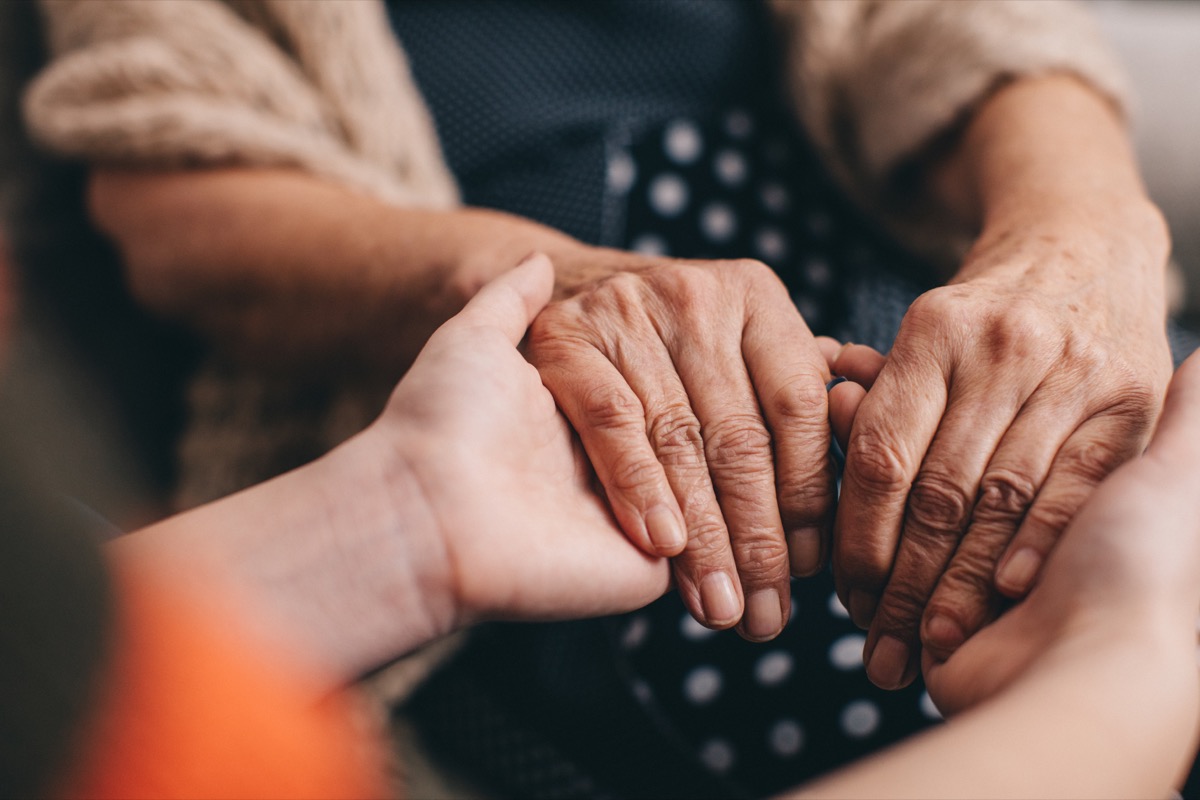
Elena Welsh, PhD, a licensed clinical psychologist in California, says that when someone is in an anxiety spiral or having a panic attack, "their nervous system has essentially been hijacked and is in a fight or flight reaction." This means that their body cannot tell the difference between a real, immediate threat and something that is just causing unnecessary worry.
"So, the problem with telling someone who is in the midst of an anxiety spiral or panic attack to 'relax' is that this feels nearly impossible to them, thus adding to the sense of overwhelm they are experiencing," Welsh says.
Instead of offering up empty words or phrases that don't help, Welsh advises people to actually aid that person in walking through the calming down process. This can include suggesting you take a deep breath together or getting them a glass of water. She says even these simple tasks may "help them shift their focus away from the source of their anxiety," which allows their body the ability to start relaxing.
"Relax" isn't the only word that has the ability to worsen someone's anxiety, however. For more words you shouldn't say to someone with anxiety, read on. And for other mental health blunders you could be making, This Is the No. 1 Mental Health Mistake You're Making Right Now.
1
Why
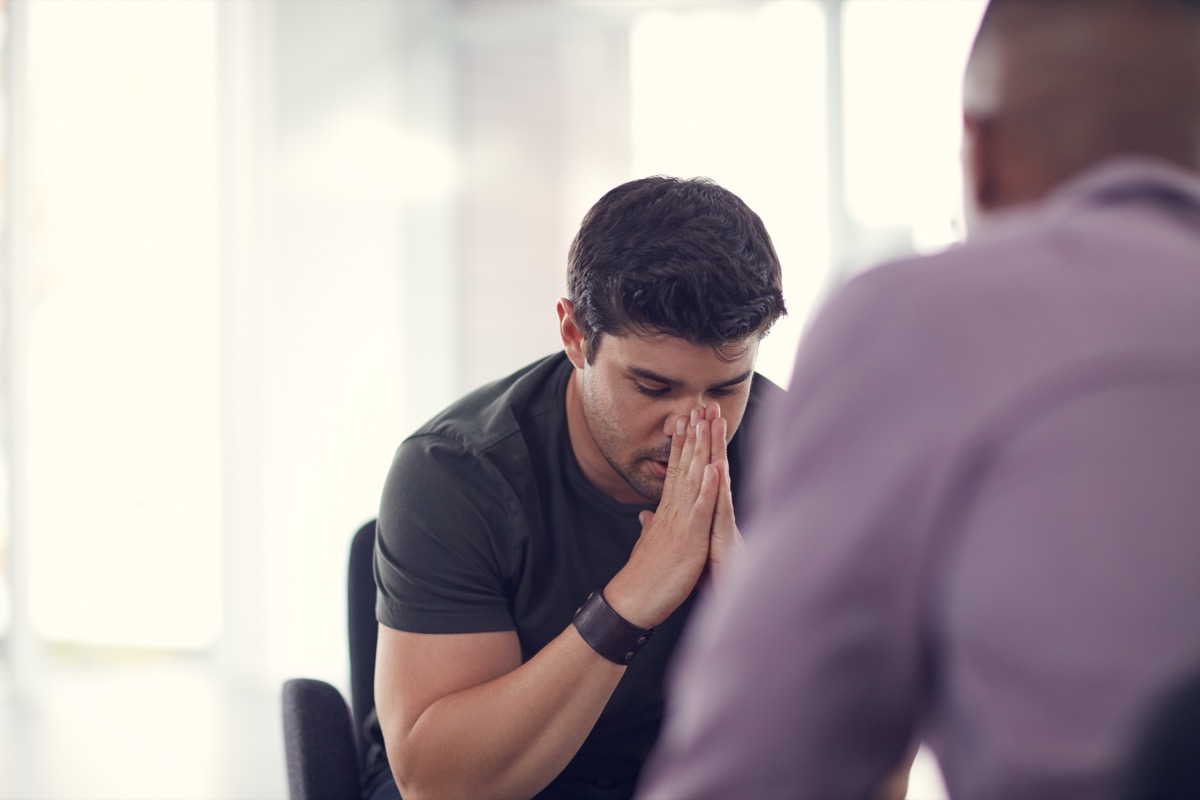
Often times, there is no clear reason for why someone is experiencing anxiety, says Jennifer Teplin, LCSW, founder and clinical director of Manhattan Wellness. And by asking them "why" they're experiencing this worry, you're indicating that there is an easy way to put an end to it.
"When we ask someone this question, about their anxiety or most other emotions, it can make the individual feel invalidated or it can cause them to spiral further since they are now searching for the reasoning," Teplin says. "Rather than asking why someone is experiencing anxiety, I'd encourage supporters to ask how they can be of service or what they can do in that exact moment to support their loved ones—often it's just sitting with them and ensuring they are safe and not alone." And for more words to avoid in various situations, This Is the One Word You Should Never Say When Apologizing.
2
Just

Clinical psychologist Sabrina Romanoff, PsyD, says that like "why," the word "just" often implies there is an easy solution to someone's anxiety. She says it also "subtly places blame on the person" and makes it seem as if you think they shouldn't be having a certain reaction.
"Additionally, it speaks to your frustration, and could place more burden on the person who now must worry about the effect of his or her anxiety on the relationship they have with you," she says. And for more on word choice, This Is the One Word You Should Never Say to Yourself.
3
Should
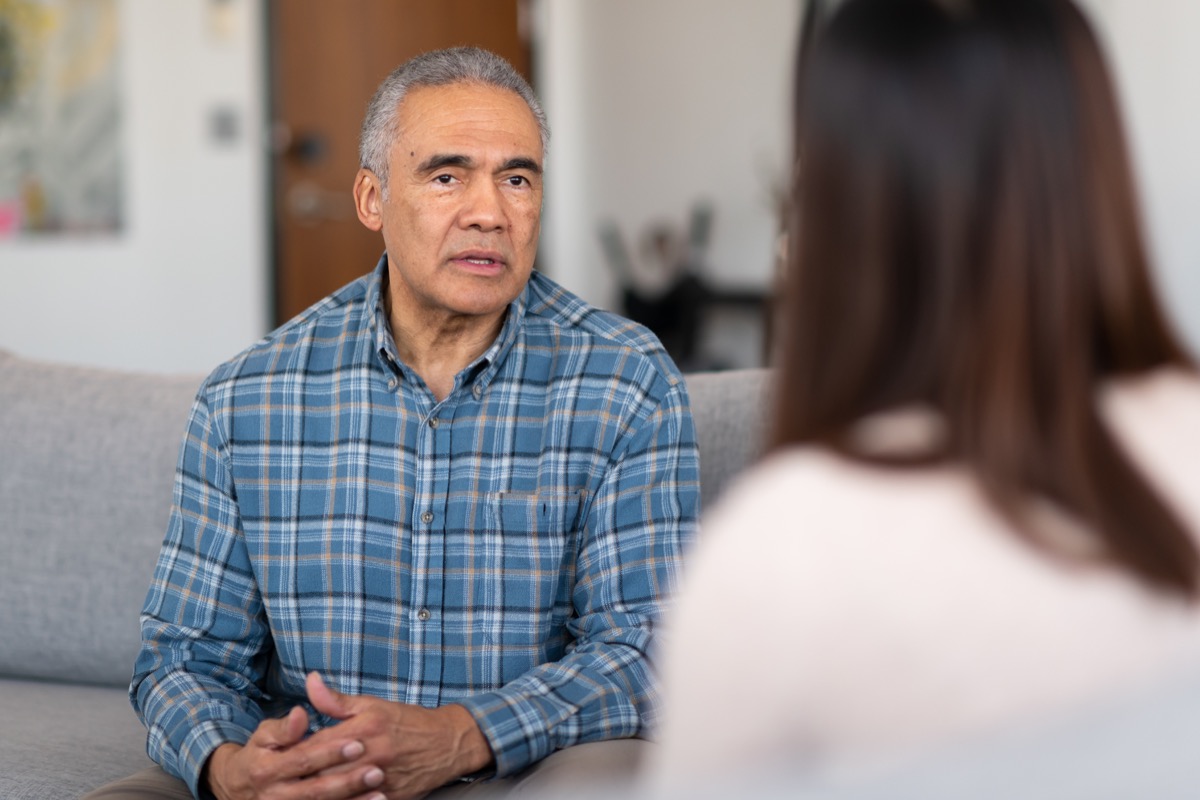
"In my experience the word 'should' is a major anxiety trigger," says Sandra Glavan, the founder of Super Sensitive Sandi, a website for helping people reduce and manage anxiety. After all, one of the main symptoms of most anxiety disorders is excessive worrying. So Glavan says that when someone with anxiety hears the word "should" from another person, it feels as if they have been given "an enormous pile of extra worries," which will just further their spiral.
4
Stop
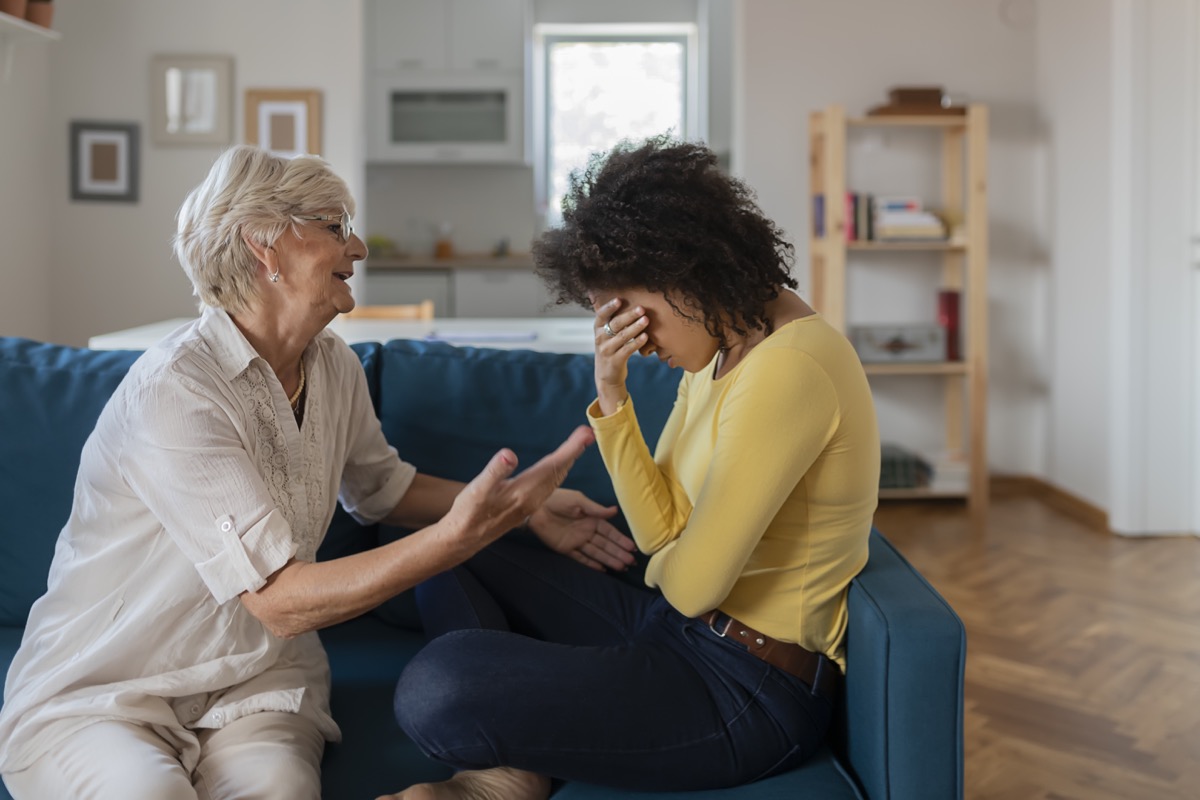
Telling someone with anxiety to "stop" is probably the most unhelpful response, says Romanoff. Like many other words, this directly places blame on the person struggling with anxiety. And not only that—it also creates a dynamic that pits you against them, when you should instead be aligning with that person against their anxiety. And for more useful content delivered straight to your inbox, sign up for our daily newsletter.





















